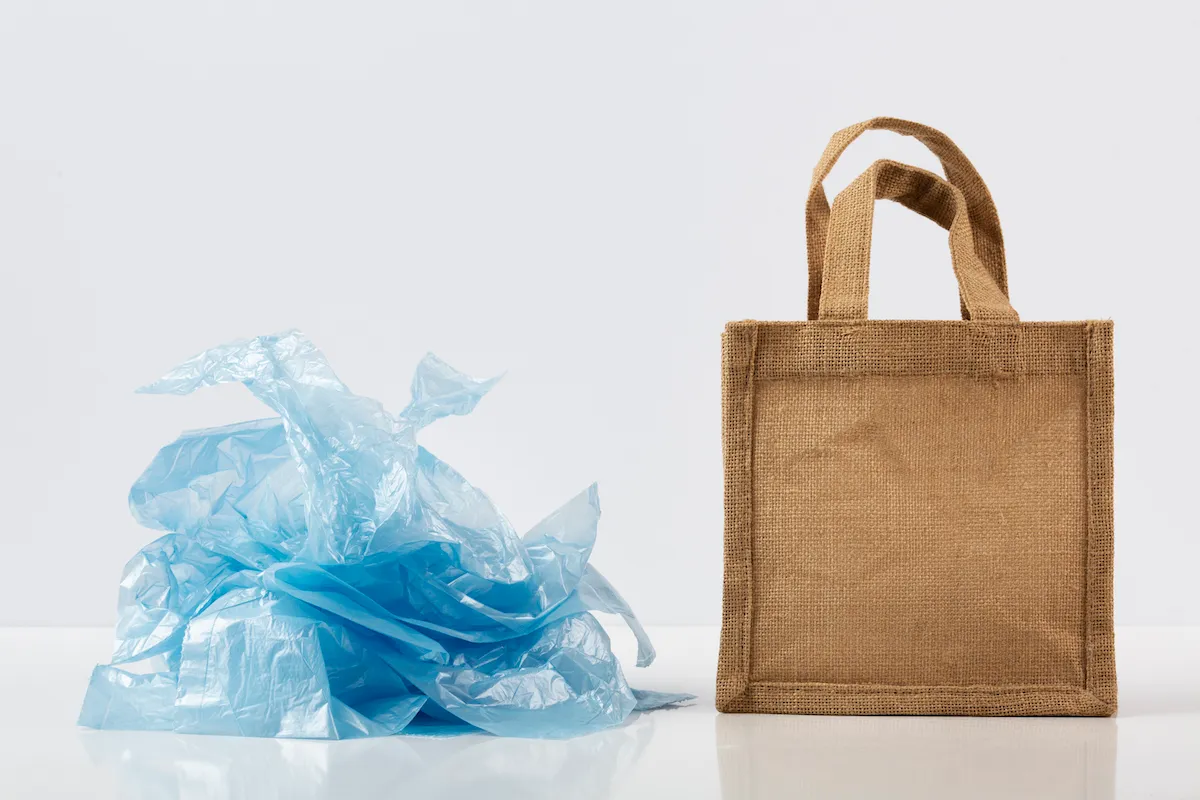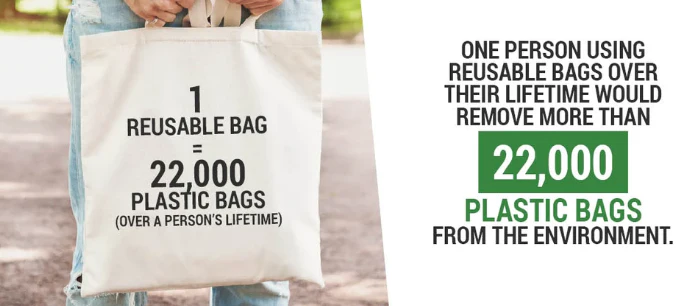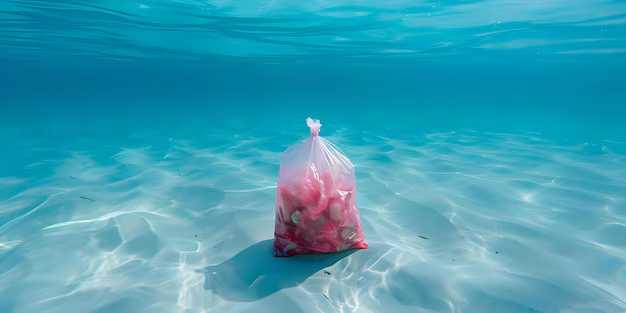
In today’s world, sustainability is on everyone’s mind. As consumers, we’re increasingly aware of the impact of the products we use on the environment. One of the most debated topics is the use of tote bags vs. plastic bags. Are tote bags truly better for the environment, or do they have their own set of environmental challenges? Let's explore these questions in-depth.
Tote bags are often seen as a more eco-friendly alternative to plastic bags. But is this really the case? Let's dive into the environmental impact of both options.
Switching to reusable tote bags seems like an easy way to make a positive environmental impact. But before we jump on the bandwagon, let’s examine the real environmental cost of both tote and plastic bags.
Are tote bags better for the environment?
Tote bags are frequently considered a greener option compared to plastic bags, but are they really better for the environment in the long run?
Tote bags can be more eco-friendly than plastic bags, but only if used consistently. Let’s look at the details of their environmental benefits.
The Eco-Friendly Benefits of Tote Bags1
Tote bags are primarily made from fabric, which can be reused countless times. Here’s how they contribute positively to the environment:
- Durability: A single tote bag can last for years if taken care of, reducing the need for constant replacements.
- Reusable: Since tote bags are reusable, they prevent the need for single-use plastic bags.
- Sustainable Materials: Many tote bags are made from eco-friendly materials like cotton, jute, or non-woven fabric, which have a much lower environmental impact than plastic.
However, it’s important to note that the production process of tote bags, especially cotton ones, can involve large amounts of water and energy, which has its own environmental cost. But overall, the long lifespan and multiple uses of tote bags generally outweigh the environmental impact of plastic bags.
When Are Tote Bags Not the Best Choice?
Tote bags become less eco-friendly when they are not used multiple times. For example, if a tote bag is only used once or twice, its environmental impact may not be much lower than that of a plastic bag.
Why should we use tote bags instead of plastic bags?

Plastic bags are a major source of environmental pollution. Why is it so important to make the switch to tote bags2?
Using tote bags instead of plastic bags helps reduce waste, cut down on pollution, and contribute to a greener planet.
The Environmental Dangers of Plastic Bags
Plastic bags are notorious for being harmful to the environment, with their slow decomposition rates. Here are some key points:
- Plastic Bags Take Hundreds of Years to Decompose: A plastic bag can take up to 500 years to decompose, and even then, it often just breaks down into microplastics that can harm wildlife.
- Land and Water Pollution: Plastic bags are not biodegradable, and they often end up polluting oceans, rivers, and landfills. They pose a threat to marine life and animals that mistake them for food.
| Plastic Bag Impact | Detail |
|---|---|
| Decomposition Time | Up to 500 years |
| Effect on Wildlife | Threat to marine animals and land creatures |
| Contribution to Pollution | Significant source of land, water, and air pollution |
How Tote Bags Help
Switching to tote bags directly reduces the demand for plastic bags. By choosing tote bags, you’re actively helping to:
- Reduce plastic waste in landfills and oceans.
- Lower overall carbon emissions3 associated with plastic production.
- Minimize pollution caused by plastic bag manufacturing and disposal.
Which type of bag is more environmentally friendly and why?
Let’s break down the environmental impact of both tote bags and plastic bags to see which is the better option overall.
When considering the environmental footprint, tote bags are generally more eco-friendly than plastic bags. However, their environmental benefits depend on proper use.
Comparing the Environmental Impact of Tote and Plastic Bags
| Criteria | Tote Bags | Plastic Bags |
|---|---|---|
| Material | Cotton, non-woven fabric, jute, etc. | Made from petroleum-based plastic |
| Production Impact | Moderate impact (depending on material) | High impact, requires significant energy |
| Reusability | Can be used hundreds of times | Single-use only |
| End-of-Life | Biodegradable or recyclable (depends on material) | Non-biodegradable, polluting |
| Overall Sustainability | High, if used consistently | Very low due to single-use nature |
Why Tote Bags Win
- Durability: Tote bags are meant to be reused over and over again. Their long lifespan makes them much more sustainable compared to the single-use nature of plastic bags.
- Recyclability: Tote bags, particularly those made from fabric like non-woven polypropylene, can be recycled after their lifespan ends.
What are the environmental impacts of plastic bags?

Plastic bags cause a myriad of environmental problems, and understanding their full impact is key to making a sustainable choice.
Plastic bags are a significant environmental threat. Their production and disposal contribute to pollution and harm wildlife, making them a harmful choice for the planet.
The Hidden Costs of Plastic Bags
The environmental issues surrounding plastic bags go beyond just the bags themselves. Here’s a look at some of the broader impacts:
- Fossil Fuel Use4: Plastic bags are made from petroleum, a non-renewable resource. The production process is energy-intensive and contributes to greenhouse gas emissions.
- Wildlife Harm5: Plastic bags are easily blown around and can end up in waterways, where animals may ingest or get entangled in them, leading to death.
- Landfill Overflow6: Since plastic bags take hundreds of years to decompose, they contribute to overflowing landfills.
Alternatives to Plastic Bags
As we move towards more sustainable solutions, reusable totes provide an easy alternative that can significantly reduce environmental impact. Companies like JiaRong Packing produce eco-friendly non-woven tote bags and other reusable products that help businesses reduce their reliance on plastic bags.
Conclusion
In conclusion, tote bags are definitely the more environmentally friendly choice when compared to plastic bags. However, the full environmental benefits depend on how often you use your tote bag and the materials used in its production. At JiaRong Packing, we pride ourselves on providing high-quality, eco-friendly products that help businesses make the switch from plastic. For more information on eco-friendly tote bags, visit JiaRong Packing.
-
Understand the materials that make tote bags environmentally friendly and sustainable. ↩
-
Discover why non-woven fabric is considered a more sustainable alternative for tote bags. ↩
-
Learn about the environmental costs of producing cotton tote bags and how it compares to plastic. ↩
-
Understand the significant carbon emissions caused by plastic bag production. ↩
-
Learn how plastic bags harm wildlife, especially marine creatures. ↩
-
Get informed about the long-term environmental burden of plastic waste. ↩









